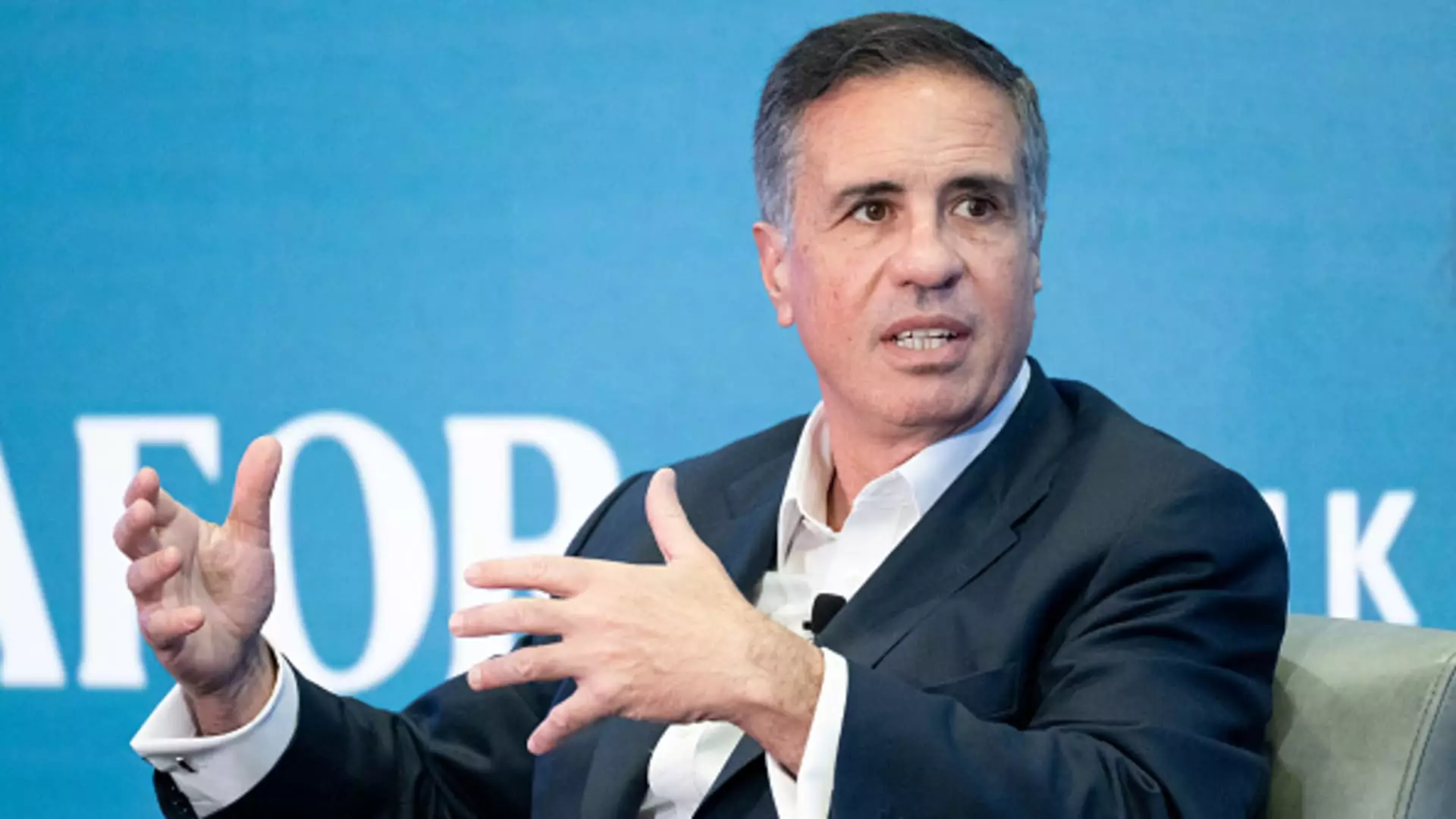JPMorgan Chase experienced a significant drop in share prices, falling 5% after the bank’s president, Daniel Pinto, expressed concerns about the overly optimistic expectations for net interest income (NII) and expenses up to 2025. Pinto stated that while the bank is aiming to achieve the 2024 NII target of $91.5 billion, the current estimate of $90 billion for the following year is considered unrealistic due to anticipated interest rate cuts by the Federal Reserve. This uncertainty surrounding the future NII figures led to a lack of specificity from Pinto about the exact amount, causing a decline in investor confidence and resulting in a substantial stock drop.
Following Pinto’s remarks at a financial conference, JPMorgan’s shares plummeted more than 7% during the session, marking the most substantial decrease since June 2020. This decline reflects the unease among investors regarding the bank’s performance as a key player in the financial industry. Despite having a successful track record of surpassing growth projections in NII through increased deposits and loans, the current economic landscape has raised doubts about the bank’s future profitability and sustainability. Concerns surrounding the outlook for JPMorgan’s stock are intertwined with broader apprehensions about the deceleration of economic growth in the United States.
Net interest income remains a critical revenue source for banks, hinging on the margin between deposit costs and interest earnings from lending and investments. With impending interest rate reductions, new loans and bond acquisitions by JPMorgan are expected to generate lower yields, posing a threat to the bank’s income stream. While declining rates could incentivize customers to retain funds in accounts offering higher returns, the trade-off is a more complex financial landscape with reduced profitability on new assets. Pinto acknowledged the bank’s asset sensitivity, highlighting the potential risks associated with diminishing interest rates on JPMorgan’s bottom line.
Apart from NII, JPMorgan also faces challenges concerning escalating expenses, with the prevailing analyst projection of approximately $94 billion for the upcoming year appearing overly optimistic. Factors such as persistent inflation levels and increased investments by the bank are expected to contribute to higher expense figures than initially forecasted. Pinto’s cautionary comments regarding the expense estimates underscore the necessity for a prudent financial approach to mitigate potential cost overruns and ensure sustainable operational efficiency. The uncertainty surrounding future expenses adds another layer of complexity to JPMorgan’s financial outlook.
Despite the concerns over NII and expenses, JPMorgan remains confident about its revenue projections for the third quarter, anticipating a stable to slightly positive performance compared to the previous year. Additionally, the bank foresees a substantial surge of approximately 15% in investment banking fees, indicating a promising segment within its operations. However, the trading sector’s performance is projected to encounter challenges, with an estimated decline in revenue due to tough market conditions and unfavorable year-over-year comparisons. This mixed outlook reflects the diverse and interconnected nature of JPMorgan’s revenue streams and the external factors influencing its financial performance.
JPMorgan Chase confronts a series of challenges regarding its net interest income, expenses, and overall financial performance. The uncertainties surrounding interest rate cuts, inflation, and market conditions necessitate a proactive and strategic approach by the bank to navigate the evolving economic landscape successfully. By addressing these concerns through prudent financial management and operational decisions, JPMorgan can enhance its resilience and sustain its position as a leading player in the banking sector amidst changing market dynamics.

